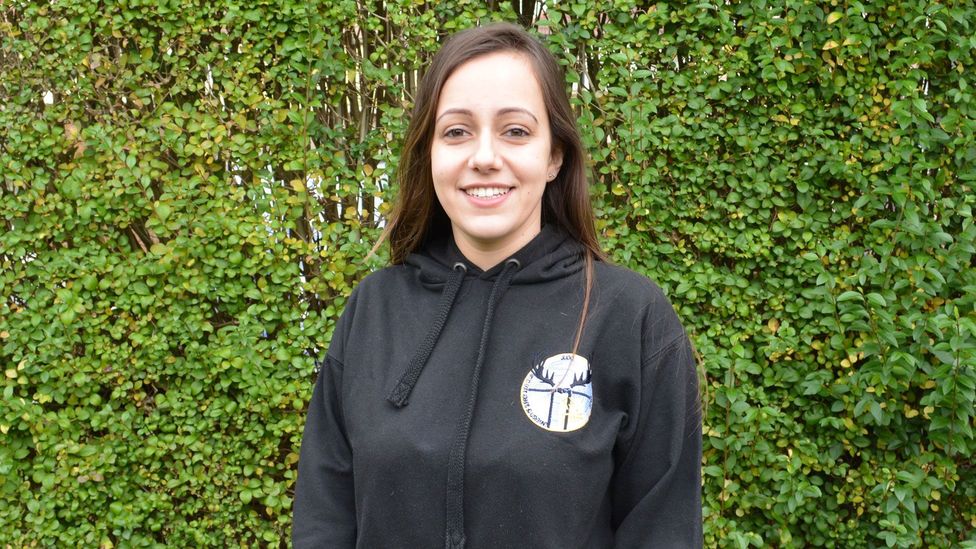Will online degrees become more ‘legitimate’?
When Blair Currey, 32, embarked on a bachelor’s degree in computer science at the University of London last year, he had no plans to travel to London. He’s studying from the comfort of home in New Jersey in the US, at half the cost of a US programme, and with the flexibility he needs. He was able to move states and travel internationally, while taking top-quality schooling with him.
The university’s reputation and the flexibility of studying online drew in Currey. “I had some doubts about the reputation of online degrees in general, so it was vital I found a programme from a trusted institution,” he says.
Fully online degrees and certificates have become increasingly popular in recent years. However, as Currey indicates, they’ve often suffered from an image problem that they’re not quite as ‘legitimate’ as in-person degrees. But the pandemic has driven a surge of interest in, and need for, virtual learning, with even traditional universities moving their instruction online. Could this year be a turning point for acceptance of virtual degrees?
If the number of people enrolling in online learning is any indication, it’s possible.

Blair Currey is studying for his computer-science degree entirely online (Credit: Blair Currey)
“Since mid-March, we’ve had 24 million individuals register for the first time. That’s about 320% up from the same period a year ago,” says Jeff Maggioncalda, CEO of online-learning platform Coursera. The site, founded in 2012 by two Stanford computer-science professors, currently offers 20 degrees as well as thousands of short courses. In autumn 2020, the number of students enrolled in its degree programmes increased 76% over the same period in 2019.
Currey’s University of London course in particular, which is delivered on the Coursera platform, has grown 62% in year-on-year recruitment, with students from 143 countries enrolled, most in their 30s and 40s.
Still, just because the industry’s growth has been huge – and is predicted to swell even further – doesn’t mean online degrees have yet come to be universally respected. Abigail Gomes Leitao, 24, who is also in Currey’s course, says that although no-one has ever directly questioned her choice to study online, “it is clear from some comments I’ve received that there is a slight stigma”. “It’s almost as though they are seen as an easier route than traditional on-campus degrees, and I do worry that future employers will view my degree in the same way, and this will affect my chances,” she says.
It is clear from some comments I’ve received that there is a slight stigma – Abigail Gomes Leitao
Gomes Leitao says her current online degree is actually just as challenging, “if not more”, than a previous on-campus degree she completed. It requires students to work more independently. “It provides you with transferable skills that wouldn’t be as easily obtained on campus.”
Adam Medros, CEO of edX, an online course and degree platform created by Harvard University and Massachusetts Institute of Technology in 2012, says that universities have to an extent reinforced this distinction between “real” and online degrees. “Three or four years ago… you saw a lot of things like an ‘i’ or an ‘e’ before the degree – an iMBA or an eMasters.” He says it was an example of universities dipping their toe into online learning, while trying to protect their own brands.
But as people get more accustomed to online learning, and demand for higher education soars, that distinction could become increasingly less pronounced. For example, in 2019, Harvard Business School changed the distinctive sounding ‘HBX’ to the simple ‘Harvard Business School Online’, making the line between its in-person and online offerings less immediately pronounced. “I think maybe post-pandemic, hopefully, some of that stigma will be removed given the necessity that we have for online learning,” says Rachel Hewitt of the UK’s Higher Education Policy Institute.

Abigail Gomes Leitao says her online-degree programme is just as challenging – if not more – than an in-person, traditional programme (Credit: Abigail Gomes Leitao)
Part of this may be that now nearly everyone is learning online. The pandemic has blurred the distinction between learning that started as virtual verses courses that were meant to be in person and have necessarily shifted to be remote. Simply, everyone is taking an online course now.
And, perhaps surprisingly, those who were already in online learning environments before the pandemic may be at an advantage. Traditional universities have been forced to cobble together online teaching at a moment’s notice, whereas “in state-of-the-art online learning, it’s a much more engaging experience because it was designed to be online”, says Maggioncalda.
“I think what is definitely happening now is that people who were not willing to get into the online game are being required to do so, so everybody has to think about it,” says Fiona Hollands, associate director and senior researcher at the Center for Benefit-Cost Studies of Education at Teachers College, Columbia University.
As a result, some universities are innovating in ways that may increase the legitimisation of online education. Part of this is finding ways to teach subjects that once were difficult or impossible to instruct virtually.
At McMaster University in Ontario, Canada, the engineering department has pioneered an entirely online first-year course. It incorporates virtual reality and computer-game technology to allow students to work in “virtual labs”. “When the pandemic hit, we put on the jets and virtualised all five elements of the course,” says Ishwar K. Puri, McMaster’s dean of engineering.
I think what the pandemic will do is really going to blur the lines between online and brick-and-mortar degrees – Fiona Hollands
Engineering student Joel Tunikaitis says although he understood the reasoning for going online, there was “absolutely a fair amount of disappointment” when he found out the course was going to be entirely remote. But, now that instruction has begun, Tunikaitis says he’s found the class to be much more like a real lab experience than he expected.
However, despite the innovation, Puri does concede that online degrees can’t compete with the social experience of going away to university.” He says, “The bricks-and-mortar university offers students something more than a degree. It offers them a sense of engagement, of belonging and an experience.”
But many online degree providers have no intention of replacing this ‘rite of passage’ university experience. Instead, they’re keener to tap into the growing market of older learners who want to improve their career prospects but need to balance studies with work and family. So, looking at a degree’s relative legitimacy may be the wrong way to evaluate things entirely.

Engineering student Joel Tunikaitis was surprised when his online class felt more like a real lab than he expected (Credit: Joel Tunikaitis)
Still, questions remain about of the impact of online degrees. Will they make the same impression as in-person degrees? Will the ubiquity of online learning devalue traditional degrees? Hollands at Teacher’s College also wonders if in-person degrees will become exclusively for wealthy students, meaning campus-based programs may end up signalling a student’s status instead of a ‘better’ degree.
But Hollands says that rather than being a threat to traditional universities, online studying could be an opportunity. “If these universities establish online offerings and attract a new set of students who would never have attended in-person anyway, then they can increase their income stream,” she says. “I don’t think traditional colleges are going away, but I do think that there’ll be more growth in the online area than there will be in the on-campus area.”
It’s perhaps still too early to say just how much the pandemic will transform online learning. The answers may lie in how accommodating a country’s educational culture is to the online-learning shift; as Hewitt of the Higher Education Policy Institute points out, some models of higher education, such as those in the UK, are more resistant to online degrees. But as evidenced this year, change can come quickly.
Coursera CEO Maggioncalda says once the pandemic ends, he expects even traditional universities to continue their new use of blended learning – a mixture of online learning and hand-on training. McMaster’s Puri adds that there is still scope for further innovation, which could ‘change the space very rapidly’.
As for Gomes Leitao’s fears about her degree being taken seriously, experts say she may well have nothing to worry about. Hollands says, “I think what the pandemic will do is really going to blur the lines between online and brick-and-mortar degrees. People will be much less focused on ‘was it online’ or ‘was it brick-and-mortar’, and more focused on the brand.”
Tim Harlow, chief commercial officer at Salt Recruitment in London, agrees it’s the qualification that matters to employers, not the study location. “I feel an individual who has enhanced their knowledge in their own time, possibly over and above another employment, demonstrates great self-drive for improvement, which is positively viewed at all times.”



